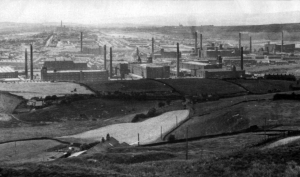
Well, the project really feels like it has started now. On Saturday (June 10th) I went to Blackburn Central Library with our new Postdoctoral Research Associate (PDRA), Dr Ruth Mather. We knew that they had microfilmed holdings of the Blackburn Times from the relevant years of 1861-65, and paper copies of the Northern Daily Telegraph. We did not get on to the latter but as it turned out we had plenty to get our teeth into with the former. As Ruth looked at the beginning of the run from 1861, I took the single year of 1864, and we began to scroll through the editions. The Blackburn Times was a Saturday paper and almost every single week there was a poem published. Of course many were about pretty flowers, and the innocent smiles of little children.
However, in the end we found more than 25 relevant poems which addressed the concerns of the Lancashire Cotton Famine from just over two years of newspaper copy, and this represents the richest seam yet in any of the Lancashire newspapers I have encountered. Not only that but the subject matter and tone of some of these poems were fascinating. For instance, there is a perception that Cotton Famine poetry is generally apolitical and tends to shy away from confrontational approaches in order (partly) to better appeal for charity; but we found examples of poetry that was sometimes angry, even radical, in its tone. The radical Chartist poet, Gerald Massey, was published more than once in this paper, and poems by presumably working-class contributors expressed their anger at the rich for allowing the conditions in which they suffered terrible economic deprivation. I found one poem where the contributor had signed him- or herself off as ‘STARVATION’.
As ever with this project, we only need to dig a little further for the story to become more complex and its implications to become more profound. All of these poems will eventually find themselves transcribed onto the database with attendant information so you will be able to read them for yourselves. They will be arranged in order of the towns they are most associated with so people from places like Blackburn, for instance, will be able to read for the first time in over 150 years what their working-class forebears wrote about this most fascinating period. I should add that Ruth had a particular investment in this search – she is a Blackburn lass herself! As you can imagine, she is keen to complete the search of the Blackburn Times, and move on to the Northern Daily Telegraph. She will be doing this next month.
Anyway, that’s enough for now. But keep checking in for future updates…
Dr Simon Rennie
University of Exeter